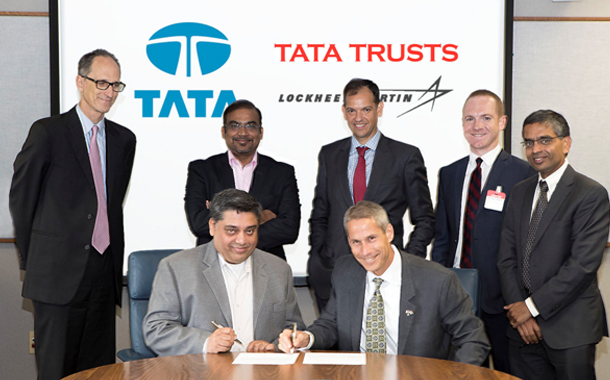Government of India Department of Science and Technology’s (DST) “India Innovation Growth Program (IIGP) 2.0” fosters sustainable social and industrial innovations
The goal of the new program is to foster a culture of innovation as well as social and industrial entrepreneurship in the country. India’s oldest non-sectarian philanthropic organization, Tata Trusts, will support and expand the Social Innovation focus of IIGP through its Foundation for Innovation and Social Entrepreneurship (FISE).
Since 2007, Lockheed Martin and the Department of Science & Technology have sponsored IIGP with the aim of accelerating innovative Indian technologies into global markets. The program has produced over 350 successful innovations and nearly USD $1B of economic value addition in India in the last decade. As a first-of-its- kind collaboration, IIGP has successfully brought core competencies from national and international institutions under one umbrella.
As per the release, the newly enhanced program offers mentorship and capacity building and provides opportunities for incubation and financial assistance. Under IIGP 2.0, select innovators across social and industrial sectors will have opportunity to accelerate their proof of concepts to a sustainable product or service for global markets.
Tata Trusts’ FISE along with select thought leaders from the Tata group will evaluate innovations that have strong societal impact and cutting edge industrial innovations. Furthermore, innovations on the industrial side that are highly potential will be leveraged in the Tata ecosystem to ensure that inventors get the right opportunity which will help them mature their concept.
Tata Trusts’ FISE will help selected innovators implement some of the social innovations to scale while other IIGP 2.0 partners will work towards assisting the winners in commercializing their technological innovations and finding them suitable business partners in India as well as in global markets.
Dr. Harsh Vardhan, Ministry of Science and Technology and Ministry of Earth Sciences, Government of India, said, “This program is a unique partnership of Industry, Academia and the Government all working towards a single objective of developing innovative solutions that can benefit the society at large. It is rare that such a partnership has completed a decade and continues to retain the same level of interest of all the partners”. He complimented Lockheed Martin Corporation, Stanford Graduate School of Business, Indo US Science & Technology Forum, FICCI and IC2 Institute for having worked towards the success of the program. He said “India is on a fast track to become a developed nation under the able leadership of our Honorable Prime Minister, Narendra Modi.”
Speaking on the occasion, Manoj Kumar, Senior Advisor, Tata Trusts and CEO, FISE, said, ‘’We imagine an India, where entrepreneurs and innovators can access the resources they need to create high quality, commercially viable, accessible and affordable solutions for social and economic problems. We are honored to partner with the Department of Science and Technology and Lockheed Martin to further reinforce our commitment to promoting socially relevant innovation and entrepreneurship to enhance the quality of life for underserved communities.”
Lockheed Martin Chief Technology Officer, Dr. Keoki Jackson said, “Innovation is central to social progress, economic growth and scientific advancement, and transforms the way we conduct our daily lives. India has great potential to create technologies that can spur industrial and social development and this agreement is intended to unlock those possibilities. We are proud to issue this Letter of Intent with India’s Department of Science and Technology and welcome Tata Trusts to this exciting effort.”
Innovators from across the country with breakthrough ideas and demonstrable proof of concepts having either a social or industrial impact are encouraged to participate in IIGP 2.0. Some of the sectors include aeronautics, agriculture, biotechnology, chemistry, communications, computing, defense, electronics, environment, healthcare, information technology, manufacturing, materials, life sciences, nanotechnology, petrochemical, semiconductors and transportation.




